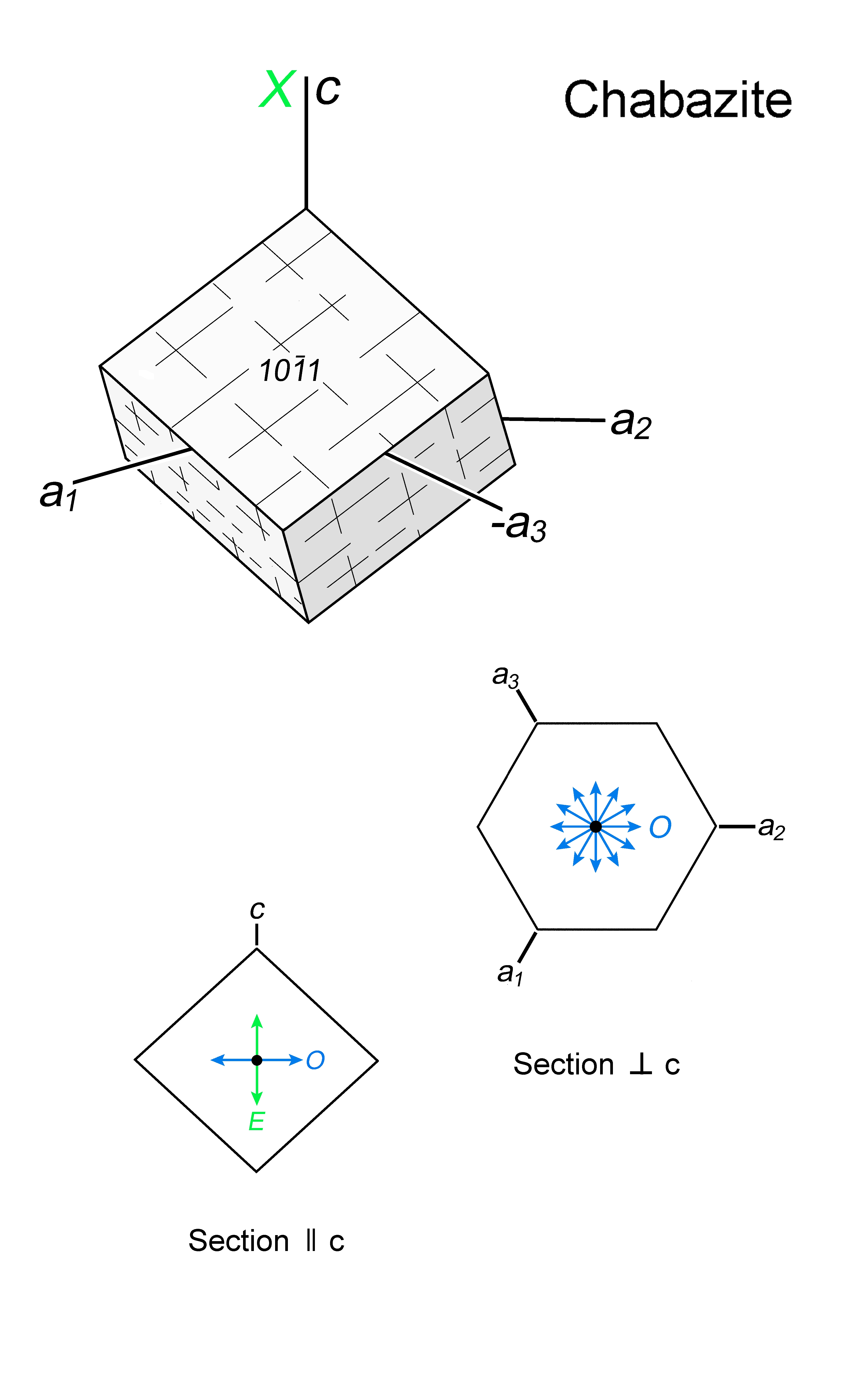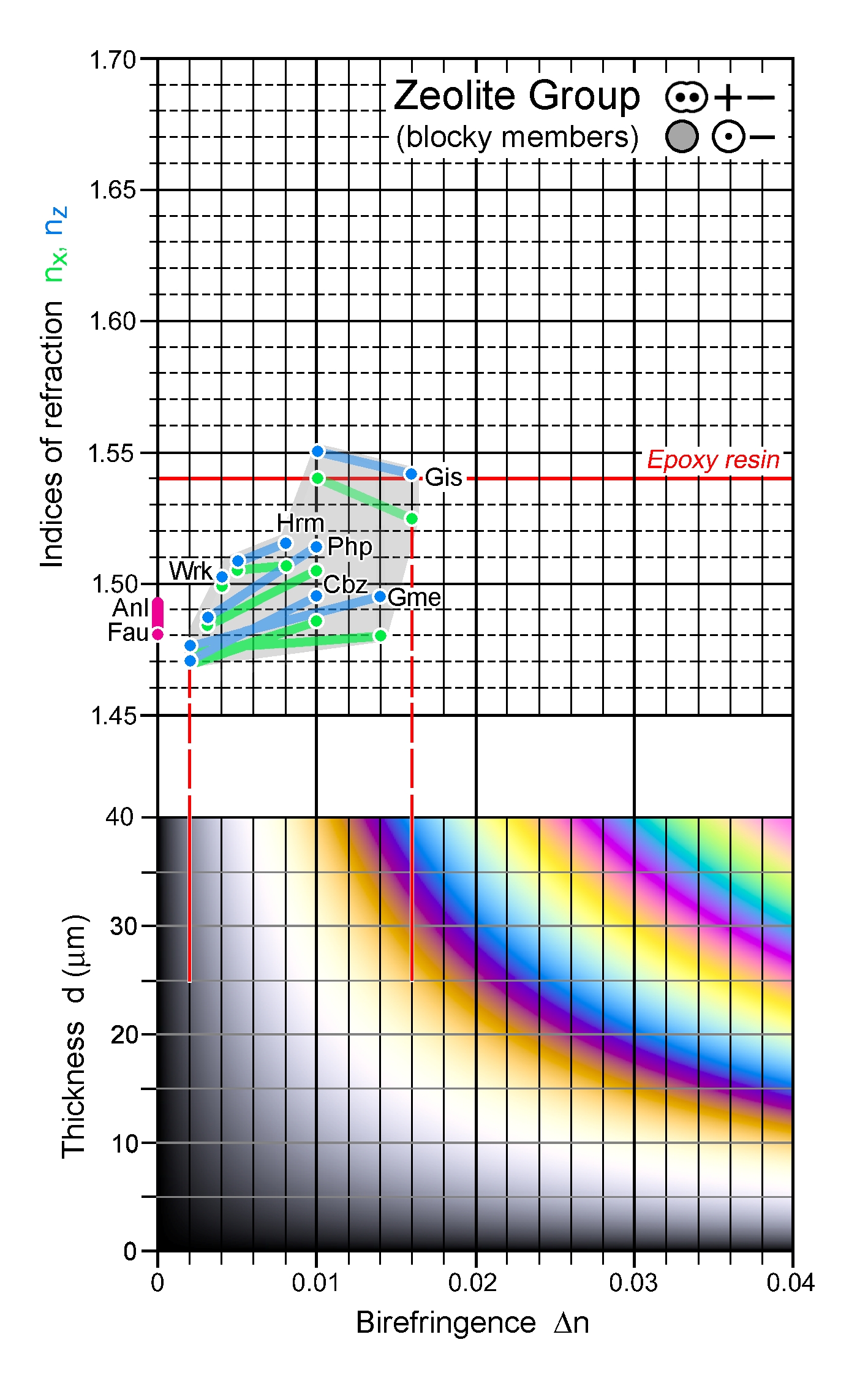|
| Formula | (Ca0.5,Na,K)4Al4Si8O24 • 12H2O |
| | Optic class & sign | Uniaxial positive or negative |
| | Relief | Moderate-negative |
| | Refractive indices | no = 1.460 -1.499
|
|
ne = 1.462 -1.501
|
|
| n decreases with increasing Na |
| | Birefringence (max.) | 0.002 - 0.010 |
| | | |
| | Sign of elongation | Not applicable |
| | Interference figure | Indistinct due to zoning, twinning and low birefringence |
| | Colour / pleochroism | Colourless |
| | Zoning | Compositional zoning is common, with variable n |
|
|
| Form | Habit | Rhombohedral (pseudo-cubic), granular |
| | | Surface | Euhedral to anhedral |
| | Cleavage | {1010}, 3 sets |
| | Twinning | Penetration twins on {0001}; {1010} contact twins; segmented basal sections with six sectors of different orientation |
| | Extinction | Symmetrical to {1010} faces and cleavage in sections parallel c |
|
|
| Reaction textures | |
| | Alteration / decomposition | Clay minerals, other zeolites; chabazite is itself an alteration product of volcanic glass and Ca-silicates |
|
|
| Occurence | Ign | |
| | | Met | Very-low-grade metamorphic mafic rocks of the ‘chabazite subzone’ (lowest-temperature part of the zeolite facies) |
| | | Sed | Lacustrine and marine sediments of pyroclastic origin; authigenic |
| | | Hyd | Vesicle and fracture fillings in basalt; hydrothermally altered rocks |
| | | Other | |
|
|
| Distinctive properties | Habit, twinning; common zeolite; intergrowth with other zeolites can make identification problematic
Note: Reliable identification of zeolite species may require chemical analysis, X-ray diffraction, and/or DTA |
| | Additional comments | May be optically biaxial with small 2V (up to 40°). Chabazite is also listed as triclinic-pseudotrigonal.
The variability of nO, nE and the related Δn is not easily presented as a simple binary range in a Δn-n plot, due to the compositional complexity of chabazite.
Sr-rich chabazite has refractive indices slightly above the ranges shown here.
n-Δn chart: Anl – analcime, Cbz – chabazite, Fau – faujasite, Gis - gismondine,
Gme – gmelinite, Hrm – harmotome, Php – phillipsite, Wrk - wairakite |
|
|

 Images
Images 


 Images
Images 
